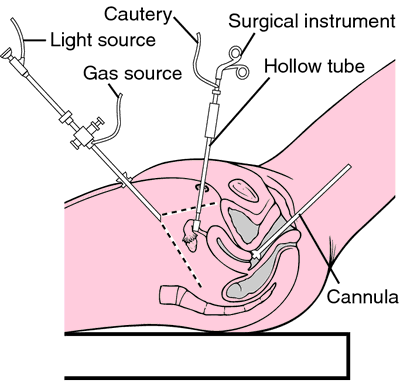Michelle King Robson talks with Kim W. at the Women's Conference about her sexual health challenges and advocating for women who have low libido.
Michelle King Robson:
Kim, it’s been a world win. I mean, you started sharing your story on EmpowHER – that was the first time you shared your story, right?
Kim W.:
I actually had done a ‘Discovery Health’ - Continuing Medical Education Program on Breaking the Silence - Low Sexual Desire in Women, and I just did it again as Kim W. and it was like a five-minute clip, kind of talking about what I went through and treatment options and so on and so forth. It was very much a medically oriented for doctors.
Michelle King Robson:
So it was more for on the doctor’s side, not so much women sharing their story. So tell us exactly what it was that you suffered from and how long you suffered and give us a little history of what happened to you?
Kim W.:
Okay, on my 31st birthday I found out that I was going through menopause and I actually thought it was a joke. I went to my doctor and I said, “I have put on some weight. I am having these hot flashes and I feel very emotional in my office and I just...,” you know there’s no explanation and I said, “Oh it sounds like menopause,” and we cracked up.
Michelle King Robson:
At 31, right?
Kim W.:
Yeah.
Michelle King Robson:
And I started in my late 30s but people don’t know that.
Kim W.:
I had just been married for a couple of months. Oh yeah, I know your story is riveting so I feel like we are more empathetic on this, and the doctor laughed. I went to an endocrinologist in New York and he confirmed that I was going through menopause and that wasn’t even the worst of it.
I spent about two years going through infertility treatments none of which were covered. So I was kind of like a lab rat for Pergonal and Clomid and all these other things and I just had no eggs left. It just wasn’t working for me so we tried donor eggs and blah, blah, blah… long story short, very soon after sex became very, very painful for me.
It started with vaginal dryness and then it just was incredibly painful and I felt as if there were always going to be tears. If I had sex then I would just have tears streaming down my face and my husband never noticed. If I didn’t have sex we’d have a fight and I’d be crying.
So it just wasn’t working and I kept…no, it didn’t make any difference, and I tried KY and other lubricants, the obvious suspects but my hormones were all out of whack and I went to different doctors. We moved a lot and I was all over the United States and to a doctor everyone was an equal opportunity offender. Every single doctor would say either try a lubricant, we can possibly adjust your hormones, or it’s not cancer so you should be happy that low libido is the biggest problem that you have.
Michelle King Robson:
So they really never said to you, they never really tried to address your health problem?
Kim W.:
Not particularly and then the few that tried to do hormone replacement therapy were always cautious about the Women’s Health Institute studies and so on and so forth. So this went on for 21 years.
Michelle King Robson:
Oh my gosh, and I am sure it ruined your marriage.
Kim W.:
Yeah, I’d been separated from my husband for three years and I really pretty much gave up and thought I am not going to go back and talk to another doctor. Finally I found a doctor in San Diego and a clinic of sexual medicine run by Dr. Goldstein and when I went in to see him he basically did a very, very detailed exam and he looked at my sensitivity to hot and cold; he looked at all kinds of things. It turned out I needed pelvic floor physical therapy.
Michelle King Robson:
Right, which most women don’t know.
Kim W.:
Who would know? I had trigger points that had to be worked out vaginally. I needed to use vaginal dilators, and I was very, very frustrated because I ended up needing testosterone. He was the first and only doctor that ever measured my sexual hormone binding globulin.
If women don’t know to have that measured they need to get it measured right away. It’s how your body, as you know, metabolizes testosterone, not just your testosterone level, and I have a Testopel – testosterone pellet implanted in my butt cheek; this is my third or fourth. It’s remarkable. I feel fantastic. It’s not FDA-approved. So now we come back full circle to going to the FDA.
Michelle King Robson:
Kim, you and I spent time at the FDA and we were speaking out on behalf of women and their sexual health because no one wants to talk about it, number one, right?
Kim W.:
Right and it’s so true.
Michelle King Robson:
We don’t want to discuss it and then if we get everybody, every woman is going to be faced with it at some point in her life if she has got hormonal issues, and before.
Kim W.:
Yeah, I have found that every woman that I have spoken to from the age of 35 to 70, some piece of my story resonates with her and the fact that there are so many drugs for ED for men and no FDA-approved treatment option for women that have under active or low libido or no libido, which was my case, it’s relationship-threatening, it is very, very painful. There’s lots of discomfort.
So in my case, going in front of the FDA, even though I wasn’t a candidate for the drug, was important to say you are doing great work because you are having this hearing, but everyone can’t afford to private pay for the treatments that I private paid for.
Michelle King Robson:
That’s another huge issue. But I wanted, you know when we were back at the FDA we had lots of opposition, right? There were women there who were, I know it was so shocking that they were opposed to this but you got cut off and it always bothered me that you were cut off during your speech and I want to make sure that you have the opportunity now to message what it was that you wanted to message because I knew it was so heartfelt and you were the one who stood up and you know, between the two of us we said, “Hey, there is such a thing. There is sexual dysfunction. We need something for this,” and so I want you to have the opportunity to say what it was that you wanted to say then.
Kim W.:
Well I have it on my Blackberry, my speech, and the thing that was so disturbing to me is that there were four women who spoke in front of me who weren’t patients, who didn’t suffer from this disorder, who said there was no such thing as hypoactive sexual desire disorder, and I stood up and said, “I have suffered from this fake disorder for 23 years”.
Michelle King Robson:
I loved that, by the way.
Kim W.:
Oh, I was so upset and I had tears, as you know, streaming down my face and I was trying to say really to relay my story, but I think where I got cut off was just saying that the conversations were so difficult because the doctors were not receptive and we just start sucking it up and we start to think that we have no right.
Michelle King Robson:
And then it’s us, right?
Kim W.:
It’s us and the idea is libido is defined by men and not by us was so offensive to me on the part of these women because I said, “Look, if you are in a relationship with your partner, with your husband, with anyone, and your libido wanes or starts to change there’s probably something wrong and you need to take action and you own it. So I want to have the option to do something about it or not. I don’t want women or men telling me I can or I don’t,” and basically that was my message.
The second part of my message that I didn’t get to relay was that the doctors and the medical community need to be much more sympathetic and better educated and know what treatment options are available. I mean when I tell my girlfriends I have had a clitoral ultrasound and that it actually could be looking for plaque or constricted blood flow they are out of their minds.
Michelle King Robson:
Right, I am sure they’d go. “What?”
Kim W.:
They have never even heard of it and it’s no different than men with erectile dysfunction with constricted blood flow – sometimes the canary in the mind for an early predictor of plaque to the heart. So to me, these things were all… they just had never been brought to light before and to me it was just really important to get that out to women really everywhere, and to men too.
Michelle King Robson:
Well, I can’t thank you enough for advocating and sharing your own story and I know it’s hard, especially when we are talking about sexual health, but I am over it already. I am talking about it; you are talking about it – we are both talking about it and we are going to get women talking about it because they need to. So you sharing your story is going to change the lives of so many women and I am so proud of you and I am so happy that we are simpatico in what we are doing.
Kim W.:
Thank you so much. You have been such an inspiration to me. I love EmpowHER. As you know, I am in videos on the site, talking to anybody that wants to talk about this is something that I am really dedicated to doing.
Michelle King Robson:
Well thank you. We love you too. Thanks.
Visit Michelle King Robson's EmpowHER Profile
Visit Kim W's EmpowHER Profile




























Add a CommentComments
There are no comments yet. Be the first one and get the conversation started!